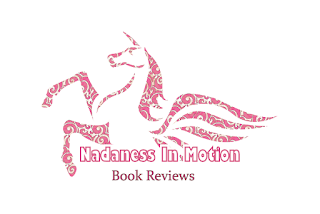 Silent Lips, Speaking
Hearts is a short
story collection by Egyptian author Tarek Hassan Refaat. The 24-story collection,
written in Arabic, is about women in general and Egyptian women in particular.
Silent Lips, Speaking
Hearts is a short
story collection by Egyptian author Tarek Hassan Refaat. The 24-story collection,
written in Arabic, is about women in general and Egyptian women in particular.
The stories are in the form
of snippets of women's lives, which makes them easily relatable, while at the same
time highlighting problems within the home and society.
At the end of Silent
Lips, Speaking Hearts, Refaat asks the reader to look at women and the
world with a view that is different and "free
of judgement, free of condescension; to look without feeling better or more
important than others; to look at a woman as she is: a person, with their own
mind, who is capable of anything and everything."
He further adds:
"Women lack nothing except the need to have
others deal with them as a person, an independent person, just like men. All that
is stopping us from doing so are ideas and beliefs that are neither related to
truth nor religion."
In each
story, the main character or protagonist is a woman, although two stories have
men as the main characters but they also revolve around women. Stories vary in
length from one to three pages at most.
Silent Lips, Speaking Hearts opens with
the shortest but most powerful story in the collection. Loosely translated to "A Woman and
Her Suitcase," this first
story paints vivid pictures in the reader's mind and leaves strong emotions in
the reader's heart.
"Gamila and her Coffee" is a
relatable story, and anyone who is a fan of romance will enjoy it,
while "Sherine and [the] War" is a magnificent piece tackling women's struggles
in Egyptian society. Five stars to this one. Here's a short excerpt from the
story:
"Sherine stood before the large mirror on the inside of her
wardrobe door. Silently, she stared at her face and ran her through her hair,
breathing in the end of a day that felt more like a war than a day; a war like
those told in stories about World War I, where soldiers run to take over some place,
run with all their speed and might, ignoring a hail of bullets and shells fired
by armored tanks, only to reach that point where they can stand tall then rest.
But Sherine felt like this war was her everyday struggle. Every day, she
had to wage her own war against a hail of criticism, judgements, harassment and
more; but worse, she was always blamed and told she was the party who wronged
others not the one who was wronged."
Not all
the stories in Silent Lips, Speaking Hearts, highlight women's heroics. Some
offer criticism about the way some women live, especially in Egypt. "Salma and Other Women" is about
that; it tackles how women often compare themselves to other women, try to
compete with men, and how many women are often willing to hurt others to rise
or to appear better.
Meanwhile,
"Amal and the People in Her Building"
sheds light on how people in Egypt often look at divorced women, like how men
and other married women look at them.
I can't translate this title but
the story, transliterated to "Talata Sokkar
Nabata," is one of the funniest stories in Silent Lips,
Speaking Hearts. Five stars to this one.
I also love "Nada and the Sea" not just because the main character shares my
name but because I totally relate to this one. It's as if I'm in the story and
it paints a beautiful picture in my mind. It's also how I view the sea; a place
I can tell worries and stories. Another five stars are in order.
In "Mona
and Beautifying [the] Pain," Refaat
tackles the prevalent idea of the strong independent woman, which has forced
women to create versions of themselves that appear strong and invincible on the
outside. Five stars to this one.
Other recommended stories in Silent Lips, Speaking Hearts include "Emad's Dream," "Hazem and Marwa," "Feryal Wins," and "Farah Writes," among others.
I have a few other comments that
pertain to the Arabic short story collection like repeated words and phrases. But
should this collection be translated into English, I think this can be easily
overcome. Many of the stories don't really involve dialogue, so it would be
nice to have some dialogue here and there.
Overall rating for Silent
Lips, Speaking Hearts by Tarek Hassan Refaat: 4 stars.
I read Silent Lips, Speaking Hearts by Tarek Hassan Refaat in 2018 and it made my top
books of that year.
Note 1: This collection is currently available
in Arabic, but if you like the review, leave me a comment below and we'll see
if we can convince the author to get it translated.
Note 2: The translations provided in this
review are my personal translation of the Arabic book.
Add Silent Lips, Speaking
Hearts on Goodreads.
About the Author:
 Tarek Hassan Refaat is an
Egyptian author. Though he works in information technology, he likes to write
short stories and novels in both English and Arabic.
Tarek Hassan Refaat is an
Egyptian author. Though he works in information technology, he likes to write
short stories and novels in both English and Arabic.
His first book was Ruptured
in 2011, followed by Ribbons and Heels in 2013 and then Broken
Shadows.
Silent Lips, Speaking Hearts is first publication in Arabic,
with publishing platform Kotobna. Tarek has also published another Arabic
collection called Moments and is currently working on publishing
two more short story collections in 2020.










